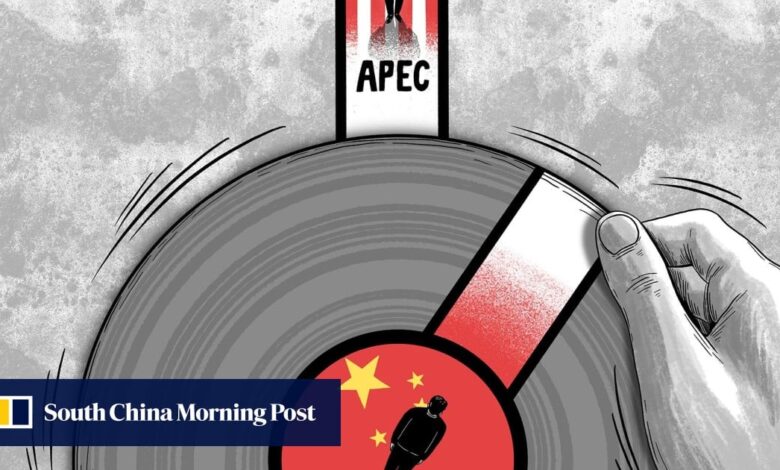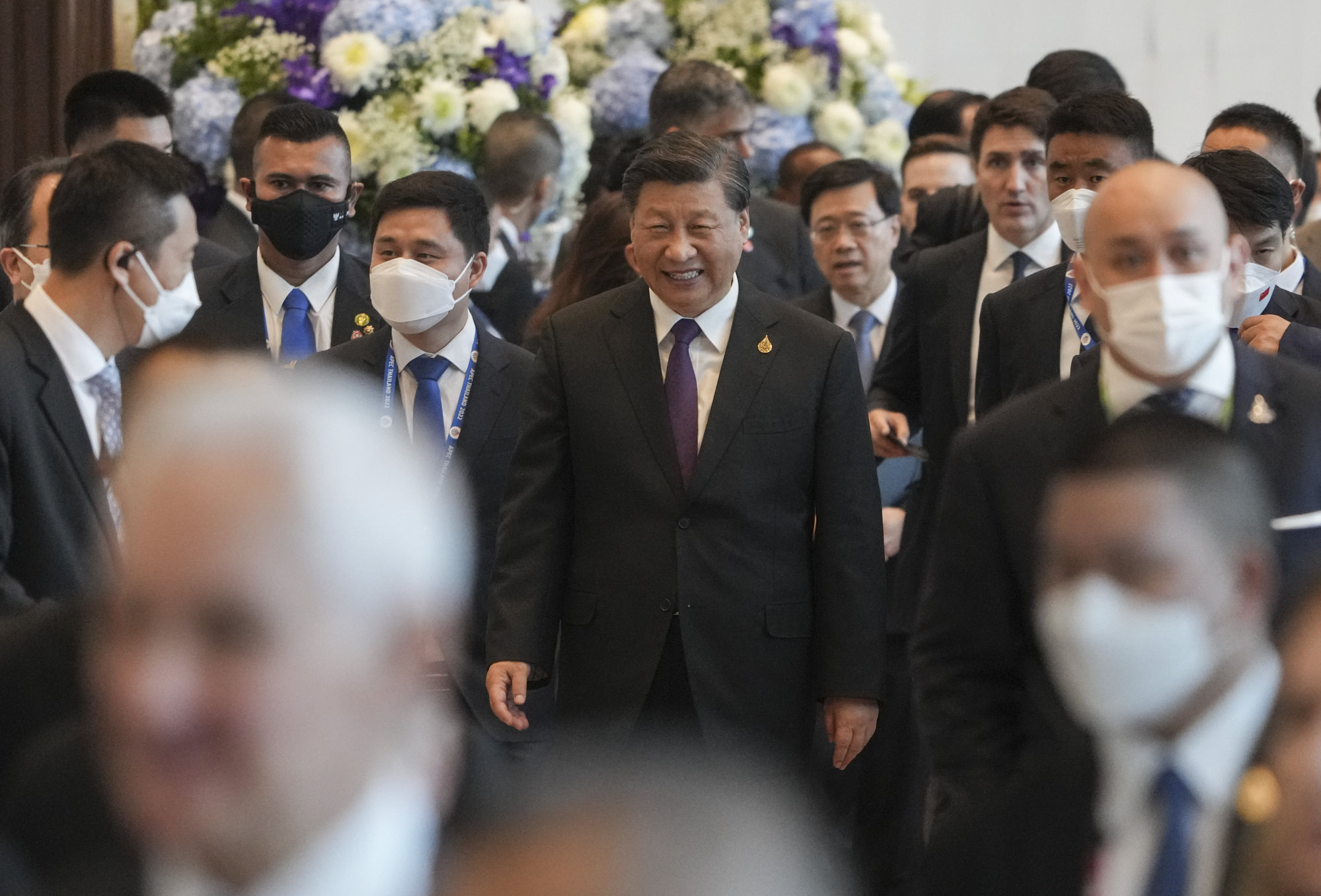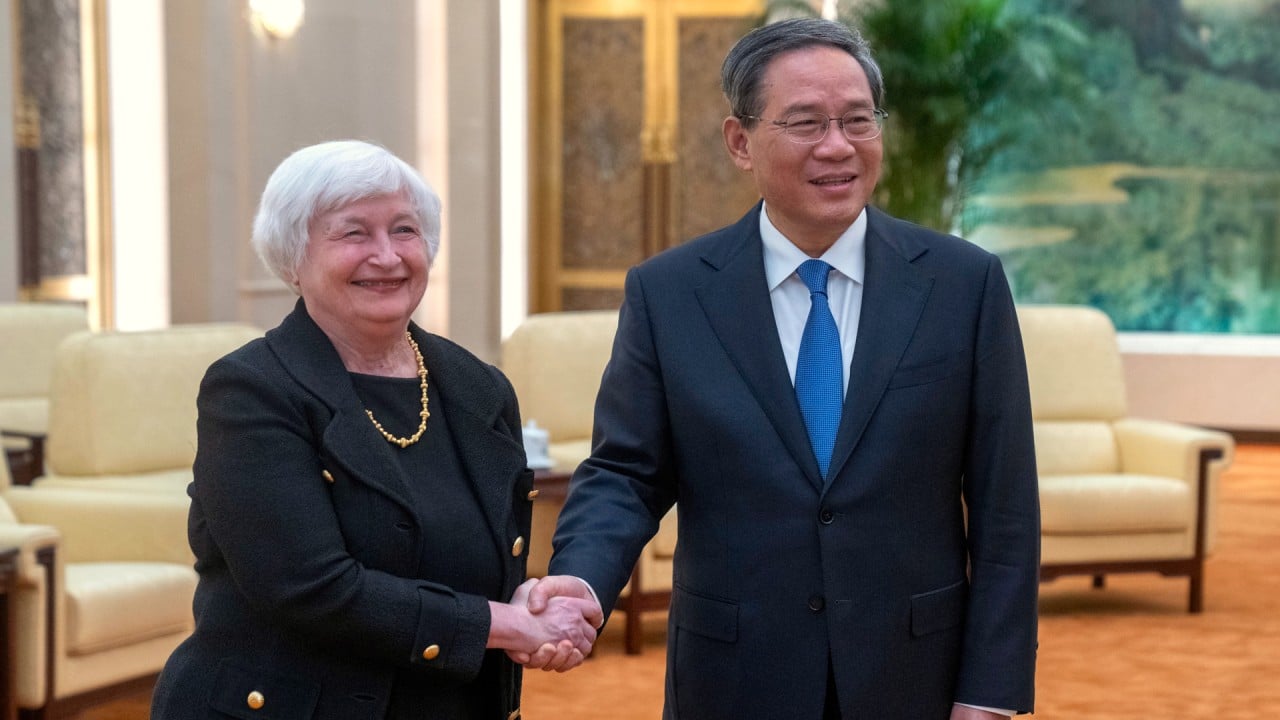Could fear of embarrassment and China’s domestic woes keep Xi Jinping away from Apec summit?

Wang said China expected the US to demonstrate “openness, fairness, inclusivity and responsibility to create better conditions for a successful summit”.
Daniel Russel, a former US diplomat who advised Biden on previous meetings with Xi, said China often remained vague about its leader’s participation in an event as a way to “retain leverage”.
“To show eagerness, they believe, will give the other side an advantage. To play hard to get, as they have over [Xi’s] Apec attendance, may induce the other side to act with restraint,” said Russel, who is now vice-president of the Asia Society Policy Institute.
Robert Daly, director of the Kissinger Institute on China and the United States, said Beijing was seeking a less turbulent relationship with the US – but not at all costs.
The Chinese government, he suggested, wanted “guarantees that the US will not embarrass Xi in the run-up to the Apec meetings – and Xi embarrasses easily, from an American perspective”.

Shi Yinhong, an international relations professor at Renmin University in Beijing, said it was likely that China was weighing up multiple factors in deciding if its top leader should attend.
“China’s economy is experiencing some difficulties and Chinese leaders will be expecting countries, especially Western ones, to talk negatively about its economic downturn,” Shi said.
Shi also suggested there was little to be gained from a Xi-Biden meeting. He noted that US-China relations had worsened and become “very intense” since Xi last met Biden on the G2o sidelines in Indonesia in November.
This could strengthen the belief in China that even if the leaders met again, the countries’ strained ties would remain unchanged, he said.
China’s envoy to US calls for ‘concrete, small steps’ in relations
China’s envoy to US calls for ‘concrete, small steps’ in relations
Russel agreed, suggesting that Xi might wonder if a meeting with Biden in San Francisco could generate significant and lasting benefits. If all Xi gets are “empty promises” by the US and Washington continues to add sanctions and empower Taiwan despite objections, Beijing might not see the point of going to the summit.
Other considerations, including dealing with what appears to be an extensive and potentially dangerous network of corruption in the military, could add to the list of reasons for Xi to stay at home, Russel said.
Last month, Beijing refreshed the senior leadership of the People’s Liberation Army’s Rocket Force, the country’s nuclear and missile arsenal, raising speculation that it was ramping up its anti-corruption efforts in the military.
Apart from that, Russel suggested that the Chinese government also had a “morbid fear” of Xi suffering embarrassment abroad and the prospect of protests in San Francisco would be a “spectre that haunts the dreams of the officials responsible for the arrangements”.
“Perhaps the image of a friendly handshake with Biden is difficult to square with the highly nationalist atmosphere that the [Chinese Communist Party’s] propaganda apparatus has fanned,” he said.

Still, Wang Huiyao, founder of Beijing-based think tank Centre for China and Globalisation (CCG), said recent developments between the US and China were positive signs that pointed to an eventual Xi-Biden meeting.
The two rival superpowers have ramped up efforts to resume engagement in recent months, with visits to China by top US officials including Secretary of State Antony Blinken, Treasury Secretary Janet Yellen and Commerce Secretary Gina Raimondo.
On Wednesday, US State Department spokesman Matthew Miller said Blinken discussed the potential Xi-Biden summit when he met Han, saying the US believed a meeting was “important” and “hoped it will take place”.
“There is a good momentum of high-level exchanges happening between the two sides,” Wang Huiyao said. “I think the Chinese and US governments both find that it is important and high time that [the two leaders] meet.”
The wave of recent interactions, he said, indicated that the two countries hoped to repair ties, and there was an increased expectation for the two leaders to meet following the high-level visits.
Wang Huiyao added that both China and the US stood to gain from a more stable relationship, and it was also in the interest of the international community to see the world’s two largest economies get to some sort of “normal relations”.
Russel said recent developments pointed to a “new-found Chinese desire for stability in external affairs”, particularly with the US.
“We are seeing now a desire to at least temporarily reduce tension, dial back harsh rhetoric, accept high-level visits, and drop the strict linkage between ‘core interests’ and any cooperation by China,” he said.
This shift, Russel said, could be motivated by the serious economic headwinds and domestic problems that China was facing, or a “prudent effort” to wait out the results of the US election next year.
“But in either case, ‘stabilisation’ seems to be the watchword and thus the odds favour a decision by Xi to attend Apec and hold another sit-down with Biden in hopes of slowing down further American moves to constrain China in technology and other fields,” he said.






